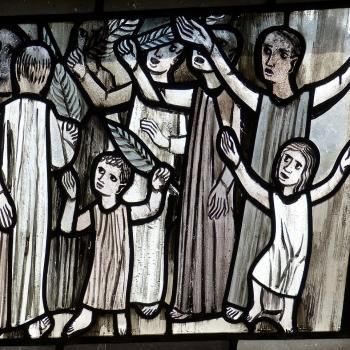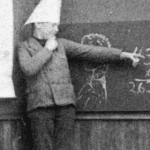Scholars have puzzled over whether salt can lose it flavor. Since salt is a very stable, non-reactive compound, the only way it can lose its flavor is by being diluted with water. New Testament scholar Barbara Reid comments that 5:13b, coming on the heels of Jesus' exhortation to rejoice when persecuted (5:11-12) is a warning to the disciples not to let their ardor dissipate under the pressures of persecution (Reid, The Gospel According to Matthew, 35).
"Lose its flavor" (moranthe) could also be rendered "become foolish." There may be a sense that if the disciples allow their wisdom (salt) to be diluted by the values of the surrounding culture, it will be indistinguishable from them and therefore worthless. Its ability to season, preserve, and purify will be lost (Hill, 115).
Douglas Hare points out that "salt of the earth" has become a way of saying "really good person." When we say, they are the "salt of the earth," we mean they have good values and are people of integrity (Hare, 44). But when Jesus hands us our receipt and says, "Go be salt," he means something much more specific and sacrificial.
Our Job Description
Salt and Light for the Whole World. Jesus' teachings in the Sermon are directed far beyond the narrow circle of the disciples themselves. We are to be salt and light for the whole world, not just a shaker of salt next to the corn pudding at the covered dish supper. Not just keeping the electric bill paid so the chandeliers in the sanctuary stay on. We are to be the salt of the earth and light of the world.Matthew 5:13-16 is connected, as if with an umbilical cord, to Matthew 28:19.
Salt and Light Give Glory to God, Not Ourselves. The goal of being salt and light is to give glory to "your Father in heaven" (see 5:17, 6:9, 11:25). These two metaphors are perfect for depicting a ministry that points beyond itself to God. Salt shouldn't call attention to itself in a well-seasoned dish. It enhances the combination of other ingredients. Light illumines other objects in the room beyond itself (Reid, 36).
Salt and Light Lead to Blessedness. The disciples are to be salt and light by living the commitments and virtues Jesus states lead to blessedness in the Beatitudes (5:1-12). Matthew, out of his Jewish background, is not afraid to speak of the rewards for faithful discipleship (5:12). But he affirms that authentic discipleship only happens in response to Jesus' mission as teacher, healer, and Savior. In keeping with the eschatological tone of the Beatitudes, the disciples are to live now the life that will be realized fully only at the end of time. It is a life that is, through Jesus, already breaking into the world (Senior, 72-73).
Have a Blessed Day?
But back to our cheery cashier with her "have a nice day!" and our crusty customer with her other plans.
I've noticed that many Christians have taken to saying, "Have a blessed day."
I realize that I tend to over think things sometimes. But when I hear that, I think, "Do I really have any control over that? Are you going to be disappointed in me if you find out that things didn't go well for me today?"
If the speaker meant "Have a blessed day" in terms of Jesus' Beatitudes in Matthew, then they would be encouraging me to live in keeping with the blessedness instructions of Matthew 5:1-12. They would be reminding me that I am salt and light, and warning me to be prepared for the joy that comes from servanthood.
I have one friend who eschews "Have a nice day," and "Have a blessed day," in favor of "Have a righteous day." If we feel compelled to tell other people what kind of day to have, that's the best choice I've encountered so far!
Works Consulted
Douglas R. A. Hare, The Interpretation Commentary on Matthew (Louisville, Kentucky: John Knox Press, 1993)
David Hill,The New Century Bible Commentary, The Gospel of Matthew (Grand Rapids, Michigan: William B. Eerdmans Publishing Company, 1972)
Barbara Reid, O.P., The New Collegeville Bible Commentary, The Gospel According to Matthew (Collegeville, Minnesota: Liturgical Press, 2005)
Donald Senior, Abingdon New Testament Commentaries, Matthew (Nashville, Tennessee: Abingdon Press, 1998)





